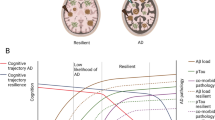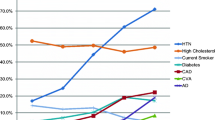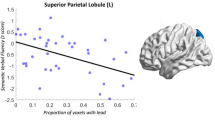Abstract
Cognitive impairment belongs to the core symptoms in MS affecting quality of life, self-esteem, and social as well as occupational functioning. Due to this high impact on patients' well-being efficient treatment concepts are required. Imaging studies on cognition have shown that functional reorganisation takes place spontaneously to compensate for deficits. In mildly to moderately impaired patients these processes may support coping with emerging deficits. However, these compensatory processes seem to be limited as brain activation of cognitively severely impaired patients is characterised by decreased additional recruitment of brain regions. Cognitive rehabilitation concentrates on the question whether induction of brain plasticity is possible for both the support of the spontaneous processes and the initiation of new ones. Combining cognition, brain imaging and cognitive rehabilitation in MS, an intriguing question is whether fMRI can provide further insights into the mechanisms of induced plasticity and serve as objective outcome measures for efficient cognitive intervention.
Similar content being viewed by others
References
Amato MP, Bartolozzi ML, Zipoli V et al. (2004) Neocortical volume decrease in relapsing-remitting MS patients with mild cognitive impairment. Neurology 63:89–93
Audoin B, Au Duong MV, Malikova I et al. (2006) Functional magnetic resonance imaging and cognition at the very early stage of MS. J Neurol Sci 245:87–91
Audoin B, Ibarrola D, Ranjeva JP et al. (2003) Compensatory cortical activation observed by fMRI during a cognitive task at the earliest stage of MS. Hum Brain Mapp 20:51–58
Benedict RH, Bakshi R, Simon JH, Priore R, Miller C, Munschauer FE (2002) Frontal cortex atrophy predicts cognitive impairment in multiple sclerosis. J Neuropsychiatry Clin Neurosci 14:44–51
Benedict RH, Carone DA, Bakshi R (2004) Correlating brain atrophy with cognitive dysfunction,mood disturbances, and personality disorder in multiple sclerosis. J Neuroimaging 14:36S–45S
Rieckmann P, Becker G (2000) The correlation between ventricular diameter measured by transcranial sonography and clinical disability and cognitive dysfunction in patients with multiple sclerosis. Arch Neurol 57:1289–1292
Blinkenberg M, Rune K, Jensen CV et al. (2000) Cortical cerebral metabolism correlates with MRI lesion load and cognitive dysfunction in MS. Neurology 54:558–564
Bo L, Vedeler CA, Nyland HI, Trapp BD, Mork SJ (2003) Subpial demyelination in the cerebral cortex of multiple sclerosis patients. J Neuropathol Exp Neurol 62:723–732
Camp SJ, Stevenson VL, Thompson AJ et al. (1999) Cognitive function in primary progressive and transitional progressive multiple sclerosis. A controlled study with MRI correlates. Brain 122:1341–1348
Charcot JM (1877) Lectures on the diseases of the nervous system. New Sydenham Society, London
Comi G, Filippi M, Martinelli V et al. (1993) Brain magnetic resonance imaging correlates of cognitive impairment in multiple sclerosis. J Neurol Sci 115:66–73
Deloire MSA, Salort E, Bonnet M et al. (2005) Cognitive impairment as marker of diffuse brain abnormalities in early relapsing remitting multiple sclerosis. J Neurol Neurosurg Psychiatry 76:519–526
Dove A, Pollmann S, Schubert T, Wiggins CJ, Von Cramon DY (2000) Prefrontal cortex activation in task switching: An event-related fMRI study. Cogn Brain Res 9:103–109
Draganski B, Gaser C, Busch V, Schuierer G, Bogdahn U, May A (2004) Neuroplasticity: changes in grey matter induced by training. Nature 427:311–312
Filippi M, Tortorella C, Rovaris M et al. (2000) Changes in the normal appearing brain tissue and cognitive impairment in multiple sclerosis. J Neurol Neurosurg Psychiatry 68:157–161
Foong J, Rozewicz L, Davie CA, Thompson AJ, Miller DH, Ron MA (1999) Correlates of executive function in multiple sclerosis: the use of magnetic resonance spectroscopy as an index of focal pathology. J Neuropsychiatry Clin Neurosci 11:45–50
Fulton JC, Grossman RI, Udupa J et al. (1999) MR lesion load and cognitive function in patients with relapsing-remitting multiple sclerosis. Am J Neuroradiol 20:1951–1955
Gadea M, Martinez-Bisbal MC, Marti- Bonmati L, Espert R, Casanova B, Coret F, Celda B (2004) Spectroscopic axonal damage of the right locus coeruleus relates to selective attention impairment in early stage relapsing-remitting multiple sclerosis. Brain 127:89–98
Huber SJ, Bornstein RA, Rammohan KW, Christy JA, Chakeres DW, McGhee RB (1992) Magnetic resonance imaging correlates of neuropsychological impairment in multiple sclerosis. J Neuropsychiatry Clin Neurosci 4:152–158
Jønsson A, Korfitzen EM, Heltberg A, Ravnborg MH, Byskov-Ottosen E (1993) Effects of neuropsychological treatment in patients with multiple sclerosis. Acta Neurol Scand 88:394–400
Kidd D, Barkhof F, McConnell R, Algra PR, Allen IV, Revesz T (1999) Cortical lesions in multiple sclerosis. Brain 122:17–26
Krause BJ, Schmidt D, Mottaghy FM et al. (1999) Episodic retrieval activates the precuneus irrespective of the imagery content of word pair associates: A PET-study. Brain 122:255–263
Kutzelnigg A, Lassmann H (2006) Cortical demyelination in multiple sclerosis: A substrate for cognitive deficits? J Neurol Sci 245:123–126
Lincoln NB, Dent A, Harding J, Weyman N, Nicholl C, Blumhardt LD, Playford ED (2002) Evaluation of cognitive assessment and cognitive intervention for people with multiple sclerosis. J Neurol Neurosurg Psychiatr 72:93–98
Mainero C, Caramia F, Pozzilli C et al. (2004) fMRI evidence of brain reorganization during attention and memory tasks in multiple sclerosis. Neuro-Image 21:858–867
McDonald WI, Compston A, Edan G et al. (2001) Recommended diagnostic criteria for Multiple Sclerosis: Guidelines from the international panel on the diagnosis of Multiple Sclerosis. Ann Neurol 50:121–127
Nagahama Y, Okada T, Katsumi Y et al. (1999) Transient neural activity in the medial superior frontal gyrus and precuneus time locked with attention shift between object features. Neuro-Image 10:193–199
Pan JW, Krupp LB, Elkins LE, Coyle PK (2001) Cognitive dysfunction lateralizes with NAA in multiple sclerosis. Appl Neuropsychol 8:155–160
Pantano P, Iannetti GD, Caramia F et al. (2002) Cortical motor reorganization after a single clinical attack of multiple sclerosis. Brain 125:1607–1615
Passingham R (1993) The frontal lobes and voluntary action. Oxford University Press, Oxford
Paulesu E, Perani D, Fazio F et al. (1996) Functional basis of memory impairment in multiple sclerosis: A [18F]FDG PET study. NeuroImage 4:87–96
Penner IK, Kappos L (2006) Retraining attention in MS. J Neurol Sci 245:147–151
Penner IK, Kappos L, Opwis K (2005) Induced changes in brain activation using a computerized attention training in patients with Multiple Sclerosis (MS). In: Opwis K, Penner IK (eds) Proceedings of KogWis05. The German Cognitive Science Conference. Schwabe, Basel, pp 150–154
Penner IK, Kappos L, Rausch M, Opwis K, Radü EW (2006) Therapy-induced plasticity of cognitive functions in MS patients: Insights from fMRI. J Physiol Paris 99:455–462
Penner IK, Rausch M, Kappos L, Opwis K, Radü EW (2003) Analysis of impairment related functional architecture in MS patients during performance of different attention tasks. J Neurol 250:461–472
Peterson JW, Bö L, Mörk S, Chang A, Trapp BD (2001) Transected neurites, apoptotic neurons, and reduced inflammation in cortical multiple sclerosis lesions. Ann Neurol 50:389–400
Piras MR, Magnano I, Canu ED et al. (2003) Longitudinal study of cognitive dysfunction in multiple sclerosis: neuropsychological, neuroradiological, and neurophysiological findings. J Neurol Neurosurg Psychiatry 74:878–885
Plohmann AM, Kappos L, Ammann A et al. (1998) Computer assisted retraining of attentional impairments in patients with multiple sclerosis. J Neurol Neurosurg Psychiatr 64:455–462
Pozzilli C, Gasperini C, Anzini A, Grasso MG, Ristori G, Fieschi C (1993) Anatomical and functional correlates of cognitive deficit in multiple sclerosis. J Neurol Sci 115:55–58
Pozzilli C, Passafiume D, Anzini A, Borsellino G, Koudriavtseva T, Sarlo G, Fieschi C (1992) Cognitive and brain imaging measures of Multiple Sclerosis. Ital J Neurol Sci 2:133–136
Prosiegel M, Michael C (1993) Neuropsychology and multiple sclerosis: Diagnostic and rehabilitative approaches. J Neurol Sci 115(Suppl):S51–S54
Pujol J, Vendrell P, Deus J, Junqué C, Bello J, Marti-Vilalta JL, Capdevila A (2001) The effect of medial frontal and posterior parietal demyelinating lesions on Stroop interference. NeuroImage 13:68–75
Rocca MA, Matthews PM, Caputo D, Ghezzi A, Falini A, Scotti G, Comi G, Filippi M (2002) Evidence for widespread movement-associated functional MRI changes in patients with PPMS. Neurology 58:866–872
Sheremata WA, Secush S, Knight D, Ziajka P (1984) Altered cerebral metabolism in MS. Neurology 34 (Suppl 1):118
Solari A, Motta A, Mendozzi L et al. (2004) Computer-aided retraining of memory and attention in people with multiple sclerosis: a randomized, double- blind controlled trial. J Neurol Sci 222:99–104
Sperling RA, Guttmann CR, Hohol MJ et al. (2001) Regional magnetic resonance imaging lesion burden and cognitive function in multiple sclerosis. Arch Neurol 58:115–121
Staffen W, Mair A, Zauner H et al. (2002) Cognitive function and fMRI in patients with multiple sclerosis: Evidence for compensatory cortical activation during an attention task. Brain 125:1275–1282
Tesar N, Bandion K, Baumhackl U (2005) Efficacy of a neuropsychological training programme for patients with multiple sclerosis – a randomised controlled trial. Wien Klin Wochenschr 117:747–754
van Buchem MA, Grossman RI, Armstrong C et al. (1998) Correlation of volumetric magnetization transfer imaging with clinical data in MS. Neurology 50:1609–1617
Von Zerssen GC, Mecklinger A, Opitz B, von Cramon DY (2001) Conscious recollection and illusory recognition: An event-related fMRI study. Eur J Neurosci 13:2148–2156
Author information
Authors and Affiliations
Corresponding author
Additional information
An erratum to this article is available at http://dx.doi.org/10.1007/s00415-008-0901-z.
Rights and permissions
About this article
Cite this article
Penner, IK., Opwis, K. & Kappos, L. Relation between functional brain imaging, cognitive impairment and cognitive rehabilitation in patients with multiple sclerosis. J Neurol 254 (Suppl 2), II53–II57 (2007). https://doi.org/10.1007/s00415-007-2013-6
Issue Date:
DOI: https://doi.org/10.1007/s00415-007-2013-6




